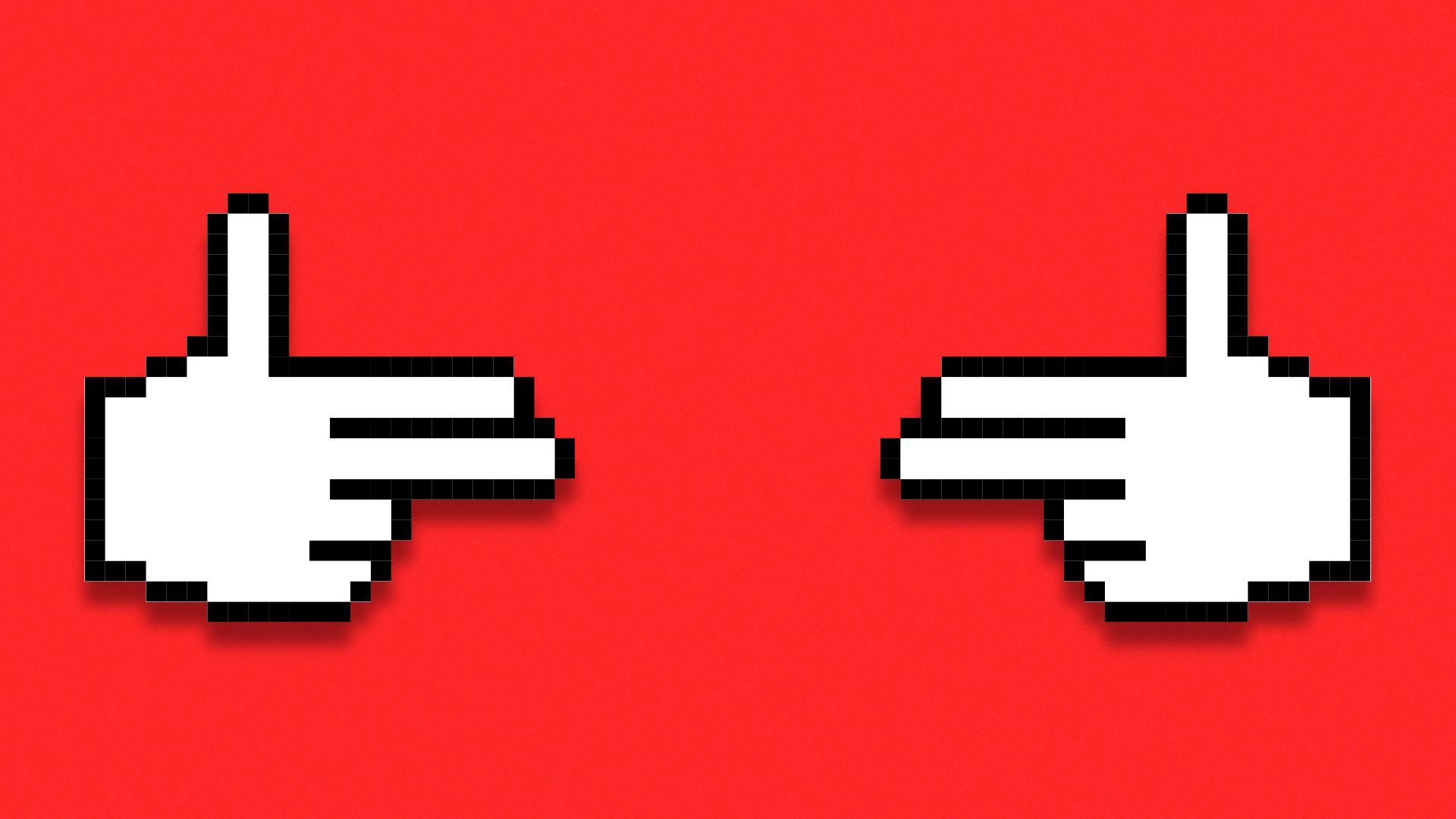Dion Rabouin

Economic tension between the U.S. and China continues to escalate but is shifting in focus — away from the tit-for-tat trade war and toward a more direct confrontation over the future of technology at the heart of the conflict between the world's two largest economies.
Why it matters: The battle between the U.S. and China was always about tech supremacy and the direct confrontation could result in an accelerated splintering of global supply chains and a significant reduction of international commerce.
There are $700 billion of U.S. companies' assets in China, generating $500 billion in domestic sales annually, per Barron's.
Yes, but: The torrent of anti-Chinese rhetoric by the Trump administration recently has been countered by much softer actions, as the administration attempts to "thread the needle" of looking tough heading into the election while having the Chinese continue to purchase U.S. goods, Mary Lovely, senior fellow at the Peterson Institute for International Economics, tells Axios.
"The tech issue is the big one … for the long term, but for the election it’s not at all clear to me that the tech issue is the big one."
Between the lines: The U.S. trade deficit to China has increased notably this year and China's manufacturing sector has benefited from exporting medical equipment and its recovery from the coronavirus pandemic being far ahead of other economies, especially the U.S.
The Chinese also have insisted they are increasing purchases of U.S. goods in line with the "phase one" trade deal, though they remain well behind a pace necessary to meet the agreement.
Driving the news: President Trump gave his "blessing" to a deal for Oracle and Walmart to form a new entity called TikTok Global, headquartered in the U.S., that will allow the video-sharing app to keep operating in the country but requested $5 billion during a speech as part of the deal to create an "education fund for American youth."
The Trump administration also tried to ban Tencent's ubiquitous WeChat app in the U.S.
Seemingly in retaliation, China has threatened to "block" a deal between U.S.-based Nvidia and Japanese-owned SoftBank for U.K.-based computer chip designer Arm.
China's state-run Global Times did not detail how Chinese regulators could block the deal.
The big picture: "The trade war is fizzling out and the tech war is heating up," David Dollar, senior fellow at the Brookings Institution, tells Axios.
"There are more legitimate areas of concern as China’s tech capability grows and I think there’s more awareness on the part of the United States."
"Part of it is just people waking up and realizing that companies have a lot of access to information about us and we don’t really know what they’re doing with that."
With the U.S. also looking to block Chinese companies like Huawei from access to U.S. technology, Chinese firms are working to develop a home-grown ecosystem to replace products from companies like Intel, Oracle and IBM.
 Data: FactSet; Chart: Axios Visuals
Data: FactSet; Chart: Axios VisualsWhat's happening: "U.S. actions on TikTok are just the latest example of the White House seeking to impede or punish Chinese companies from succeeding in gaining important leverage in technology and global communications and have heightened Chinese sensitivities," Steven Skancke, a former Treasury Department official who now serves as chief economic adviser at Keel Point, tells Axios.
"While TikTok is a highly visible rebuke of a China technology company, it is probably less strategic than what China fears would be a further threat to its plans for Huawei gaining dominance in global communications."
That's got investors betting big on tech companies from China, which have seen a bigger run-up in stock prices than even U.S. tech shares.
Watch this space: The tech war could escalate to the point that U.S. companies as large as Apple could be expelled from China, Laura Martin, senior research analyst at Needham, told me on the latest episode of the "Market Banter" podcast.
"I think if Trump gets re-elected, he keeps turning up the heat on China."
No comments:
Post a Comment